Purpose of the MSK toolkit
The main purpose of this report is to define and guide service provision for musculoskeletal podiatry.
The primary audience is NHS departments where clarity, unity and provision of care vary throughout the four nations.
Aims of the MSK toolkit
Long-term aims
The three objectives:

Collate data
To tabulate specific outcomes from data collected from NHS trusts and Health Boards on MSK interventions.
Lead analysis
Lead analysis on the data collected.
Develop a narrative
Work with a health economist/data analyst to develop a narrative around cost-effectiveness of podiatric MSK interventions with commissioners as the key audience.What are MSK conditions?
Musculoskeletal (MSK) conditions are the most common form of physical disability worldwide, with a suggested range of 3-26% of the population experiencing foot-related MSK pathologies
MSK pathologies include:
Generalised foot osteoarthritisInflammatory disease
Paediatric growth and development
Sports injuries
Fragility and falls risk
Neurological conditions.
Podiatric intervention is developed through an accurate diagnosis of the pathology accompanied by an analysis of gait and human movement biomechanics relating to the complaint. From this diagnostic information a suitable treatment plan is agreed.
MSK toolkit - six themes
By collating this data and building collaboration between trusts on treatment protocols and care pathways, an effective knowledge transfer route will be formed to create a two-way flow of communication between the College and activity within NHS MSK provision.
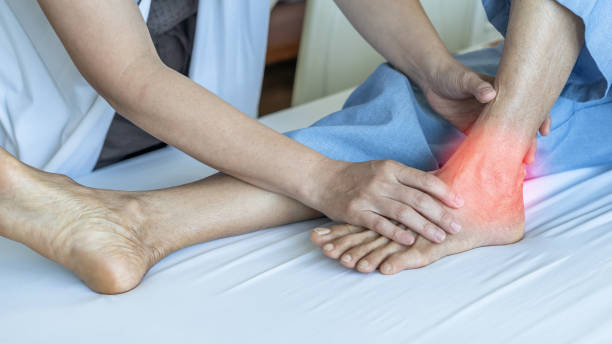
Theme 1: Point of referral and patient journey
Referrals into an MSK podiatry service can be via the GP, self-referral or by another medical/healthcare professional.
Completing the correct initial referral into services can be the main hurdle to access care.
Therefore there is a case to provide a national programme to raise awareness of MSK podiatry skills.
Find out more
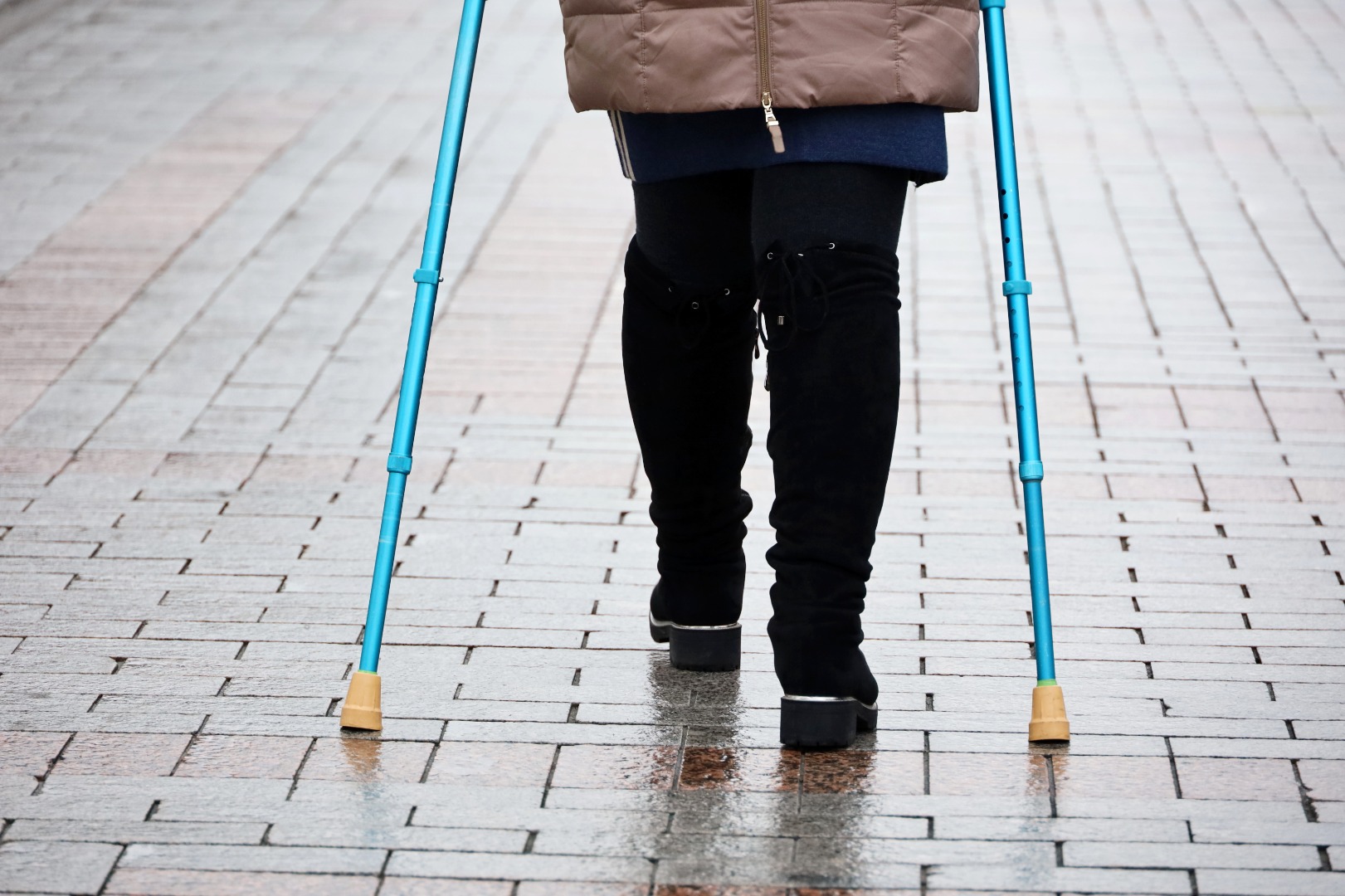
Theme 2: Treatment outcomes
The main aim of podiatry is to get the patient better; therefore measuring patient outcome measures (PROMS) is essential.The Manchester-Oxford Foot Questionnaire (MOXFQ) is the most reliable and repeatable clinical tool of available PROMS.
The podiatry audit tool PASCOM-10 has developed a new short form which allows the practitioner to collate information specifically around MSK activity.
Utilisation of this tool will build on the supportive evidence available to promote efficacy of MSK podiatry intervention.
Find out more
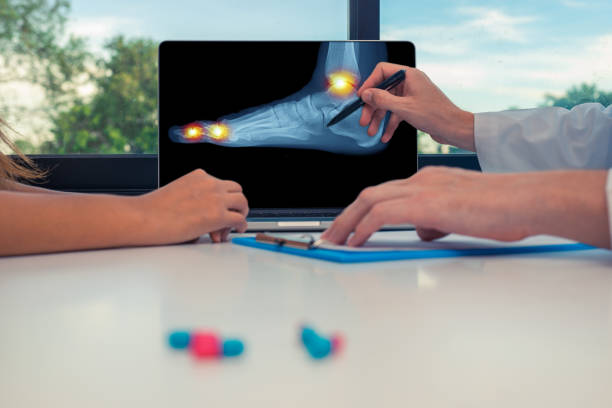
Theme 3: Case studies
Service provision for MSK podiatry generally fits into one of three formats:
- Within a community service, with several podiatric roles at different competency levels with set pathways for referrals and conditions treated
- Within a hospital multi-disciplinary team or musculoskeletal clinical assessment and treatment service where advanced practice provides care for complex cases.
- Within primary care networks where first point of contact (FCP) podiatry MSK sits in a triage role for patients in GP surgeries.
Find out more about these different scenaries in our case studies

Theme 4: Costing
Establishing a costing model for MSK podiatry services is a difficult task due to:
- Historical and geographical negotiated contracts and previous agreements in service provision
- Funds being managed under the umbrella of podiatry as a whole, making it difficult to distinguish MSK costing from diabetes, nail surgery and general care
- The newer role of first point of contact podiatrist working in MSK is funded by the employing PCN
- In addition to wages, a cost model needs to factor in running costs of materials, equipment, training and access to other facilities.
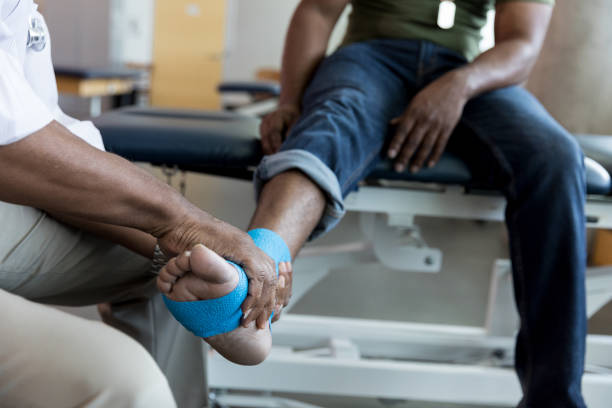
Theme 5: Treatment protocols
A vast array of conditions are observed in adult MSK podiatry. A recent review of treatments in managing the most common conditions has led to the development of evidence-based treatment protocols.The protocols have been developed with research-based information and guide the practitioner on diagnosis, assessment, intervention and prognosis of the condition.
Lack of research means that not all conditions will have a evidence-based care pathway. However, the application of underlying biomechanical prinicples allows an MSK podiatrist to provide intervention in a range of mechanical and inflammatory conditions.
Find out more
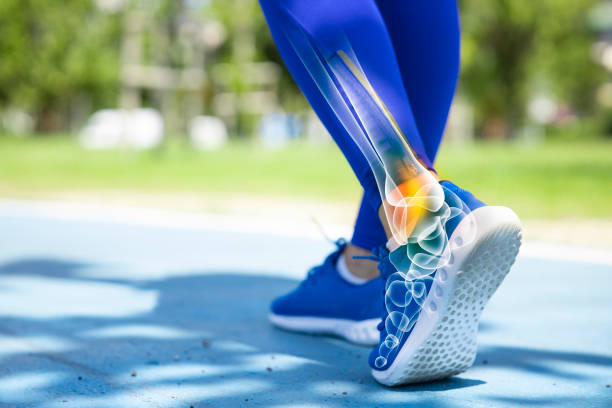
Theme 6: Specialities
Several specialities exist within MSK podiatry in which podiatrists can practice at an advanced and consultant level where their learning, practice, leadership and research focus on a subset of pathology.Specialities include: paediatric care, rheumatology, sports medicine, neurology and surgical interventions.
Suitable pathways of training need to be established to equip and support this higher level of practice, enabling lead podiatrists to develop suitable specialities with appropriate service training.
Find out more
Conclusion and summary
The MSK toolkit makes the following recommendations:
- MSK podiatry services can make a significant difference to patient care and outcomes when the foot and lower limb are affected. Services can be accessed at every level of NHS delivery
- A service provision model is recommended in which the patient can be assessed at initial contact and given suitable advice or referral to correct podiatry
- Within podiatry MSK provision, there should be an advanced practitioner for each of the three specialities: paediatrics, orthopaedic medicine (general MSK) and rheumatology.
Acknowledgements
The following individuals have been integral in supporting this work by providing content, advice and review of the toolkit. Lindsay Sherriff, Richard Collings, Richard Keating, Graeme Hadlow, Tony Maher, Pedro Sereno, James Welsh, Chris Joyce, Thomas Calderbank, Scott McNabb, Georgina Hardaker, Mike Wright and Ben Lumley. Additional thanks go to staff at Sandwell and West Birmingham Hospital NHS Trust. Birmingham UK for work on the care pathways, East Sussex Healthcare trust for review of PASCOM changes and Torbay and South Devon NHS Foundation Trust for support with base-line data.
MSK: UK, Dr Emma Cowley and Dr Jill Halstead have reviewed this work as the special advisory group.
Data sets
Musculoskeletal toolkit for evidencing podiatry effectiveness references large data sets which can be obtained on request from the RCPod by emailing press@rcpod.org.uk
